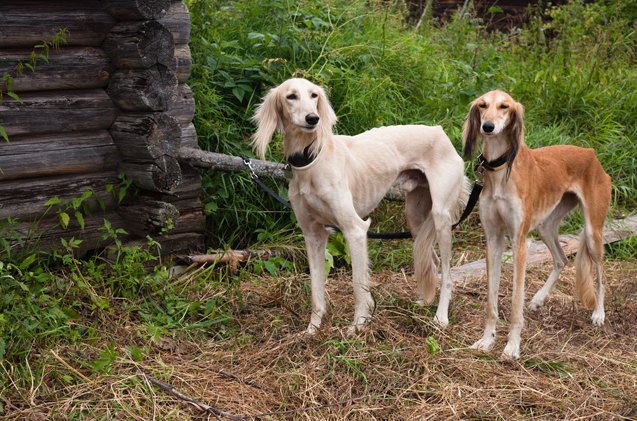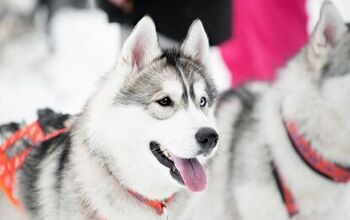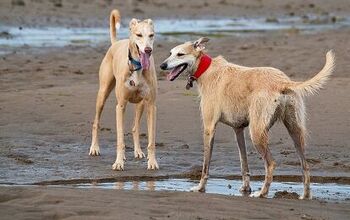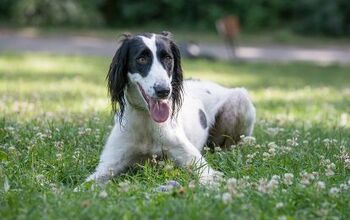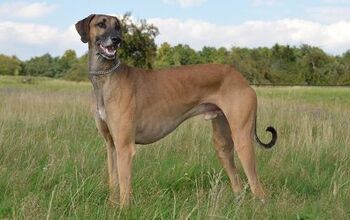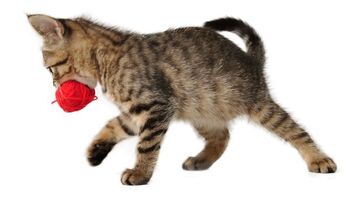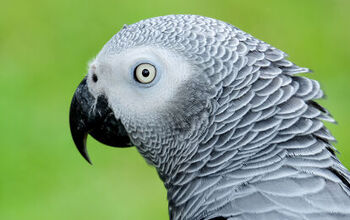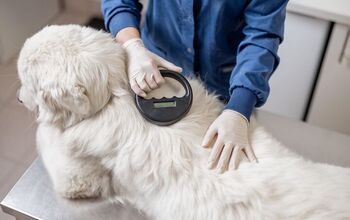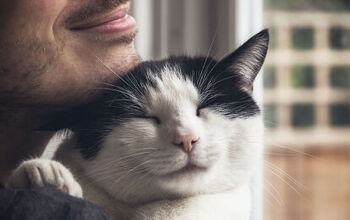Saluki


About Saluki
With the moniker of “The Royal Dog of Egypt,” it’s quite apparent that the Saluki is an elegant and graceful breed of dog. This natural grace does not mean that the Saluki is all prim and proper. In fact, the Saluki is an amazing athlete, a formidable hunter and a loyal companion. The Saluki’s good looks are often confused with a trimmed Afghan Hound. Although they are both sighthounds, they are two distinctly different breeds.
Salukis are wonderful companions and get along quite well with older children. They are not tolerant of younger kids who might pull their hair, ears or tails or climb on top of them. They are best suited for adult and teenaged companions. You can continue reading to learn more about the Saluki.
The Saluki is an amazing athlete, a formidable hunter and a loyal companion.
It is believed that the Saluki is one of, if not the oldest breed of dog. Its history predates any history records found. They were prized by many, including the ancient Pharaohs of Egypt. The Saluki was so favored by the Pharaohs that the mummified remains of Salukis have been found entombed with royal Egyptians. These beautiful dogs were used not only for companionship but for hunting gazelle and other game. In 1840, the Saluki was first brought to England. This mysterious breed was first recognized by the AKC in 1929.
Because of the antiquity of the breed, there isn’t even speculation as to how it was developed.
It is essential that the Saluki be fed a high-quality diet of dry food. Although many people feed their dogs only once per day, quite a few Saluki enthusiasts free feed their dogs. This means that they leave dry kibble available for the dog all day. Few Salukis will overeat and become overweight therefore; free feeding should not be a problem. Free feeding can also help to prevent bloat, which has occasionally been a problem in the breed.
Although the Saluki is an intelligent dog, training can prove to be problematic.
Although the Saluki is an intelligent dog, training can prove to be problematic. Salukis are extremely sensitive so positive training methods are indicated. Raising your voice, yelling or harsh reprimands will ruin any training session with a Saluki. Kind, gentle instruction and plenty of yummy rewards will work wonders while training this breed. It is wise to have all training sessions in an area free from distractions. Once a fuzzy bunny or quick moving squirrel passes by, the Saluki will not be able to resist chasing it down. This doesn’t mean the dog is stupid; it simply has an inherent drive to chase down prey.
The Saluki can weigh between 35 and 70 pounds and be somewhere from 23 to 28 inches tall at the withers. Males are generally larger than females.
Salukis are reserved and sensitive dogs by nature and quite gentle with the adults and older children in their families. However, they are not the right breed for those with small children. They have an even temper but will not tolerate young kids well. The Saluki is quite intelligent but headstrong as well which can make training problematic.
The Saluki’s elegant appearance and exotic good looks often fool people into thinking that they are simply sweet couch potatoes. They can be really mischievous and wreak havoc on a home and garden when unattended. Although a wonderful breed, the Saluki is not the best choice for every family.
The major health issues that Saluki owners face are heart problems, cancers, autoimmune issues and allergic reactions. Heart problems found within the breed include various grades of heart murmurs, congenital heart defects, Cardiomyopathy, heart valve problems, Congestive Heart Failure and irregular heartbeat. Leukemia, Lymphoma, Hemangiosarcoma and various masses are just some of the cancers that have been diagnosed in Salukis. Salukis are highly sensitive to medications and anesthesia so veterinarians should use caution when treating this breed of dog.
The average Saluki lives to be 12 to 14 years old.
Because the Saluki is an athletic sighthound, it requires a fair amount of exercise. The best form of exercise for a Saluki is free running in a securely fenced yard. It will need to have at least 400 feet of straight run for the dog to be able to get to full stride. Owners should be aware that Salukis can jump into the air in order to catch prey so the fence should be at least six feet high. This dog should never be left off leash outside of a fenced enclosure. His keen hunting instincts will kick in once he sees something that he considers to be prey, often the neighbor’s cat. Once he catches it, he will kill it. This is what he was bred to do. Unfortunately, once the Saluki takes off, he is very hard to catch and potentially could be killed by a car.
Of course, Salukis love their creature comforts. After a good play session, they can usually be found napping on the couch or snoozing the afternoon away in bed.
Salukis are reserved and sensitive dogs by nature and quite gentle with the adults and older children in their families.
The American Kennel Club states: “Although the breed appears graceful and fragile, don’t be fooled – the Saluki is an avid hunter and possesses the strength and endurance to chase quarry over long distances and difficult terrain.” The Saluki was first recognized by the AKC in 1929.
The smooth and silky coat of the Saluki is so soft that is feels like a young kitten’s. The tail, legs and ears have long feathering that accentuates the long, tall silhouette. Salukis can be found in a variety of striking colors including white, gold, red, fawn, tricolor, black and tan as well as grizzle and tan. The most common coat colors are fawn and gold.
Grooming isn’t a big chore for the Saluki owner. Simple brushing to ensure that the feathering doesn’t mat and coat is free from debris is enough. Frequent baths are necessary to keep the skin healthy.
Saluki puppies are absolutely gorgeous but they need socialization from the time the puppy goes to his new home. Puppy obedience classes are also a good idea as training should always begin early as possible. It’s best to crate train the puppy because Salukis are inquisitive and mischievous and can not only damage your home but can also do harm to himself by chewing power cords or eating other objects.
Photo credit: foaloce/Shutterstock

Amy Tokic, Editor of PetGuide.com, is a passionate animal lover and proud pet parent of Oscar, a Shih Tzu/Chihuahua cross, and Zed, a Japanese Chin. Her love of animals began in kindergarten, when she brought her stuffed dog Snoopy into class with her every day. Now, she writes about her adventures in pet ownership and tirelessly researches products, news and health related issues she can share with other animal enthusiasts. In her free time, Amy loves perusing used book and record stores, obsessing over the latest pet products available and chasing squirrels with wild abandon (a habit attributed to spending too much time with her pooches).
More by Amy Tokic



